
Würzburg: The Jewel of Franconia
Würzburg, nestled in the heart of Franconia, is a city that perfectly blends history, culture, and natural beauty. Known for its stunning baroque and rococo architecture, it is home to the UNESCO World Heritage Site, the Würzburg Residence. This grand palace, with its lavish interiors and expansive gardens, is a must-see for any visitor. The city is also renowned for its many beautiful churches, including the Würzburg Cathedral and the Marienkapelle, which stand as testaments to its rich religious heritage. Würzburg is not just about its historic buildings. It is a vibrant city with a lively cultural scene. Visitors can enjoy a variety of festivals throughout the year, including the famous Würzburg Wine Festival, which celebrates the region’s long-standing tradition of wine-making. The city's picturesque location along the Main River also offers ample opportunities for leisurely walks, boat trips, and scenic views. Food lovers will find Würzburg a delight with its array of restaurants serving traditional Franconian cuisine. Don't miss the chance to try the local wine, known for its high quality and unique flavors. For a more modern experience, the city’s bustling shopping streets and markets offer a range of goods from local crafts to international brands.
Local tips in Wurzburg
- Visit early in the morning to avoid crowds at the Würzburg Residence.
- Try the local Silvaner wine, especially at one of the many wine bars along the Main River.
- Explore the city on foot or by bike to fully appreciate its charming streets and riverside paths.
- Check the local calendar for festivals and events during your stay.
- Don't miss the panoramic view from the Marienberg Fortress.
Neighbourhoods in Wurzburg
Würzburg: The Jewel of Franconia
Würzburg, nestled in the heart of Franconia, is a city that perfectly blends history, culture, and natural beauty. Known for its stunning baroque and rococo architecture, it is home to the UNESCO World Heritage Site, the Würzburg Residence. This grand palace, with its lavish interiors and expansive gardens, is a must-see for any visitor. The city is also renowned for its many beautiful churches, including the Würzburg Cathedral and the Marienkapelle, which stand as testaments to its rich religious heritage. Würzburg is not just about its historic buildings. It is a vibrant city with a lively cultural scene. Visitors can enjoy a variety of festivals throughout the year, including the famous Würzburg Wine Festival, which celebrates the region’s long-standing tradition of wine-making. The city's picturesque location along the Main River also offers ample opportunities for leisurely walks, boat trips, and scenic views. Food lovers will find Würzburg a delight with its array of restaurants serving traditional Franconian cuisine. Don't miss the chance to try the local wine, known for its high quality and unique flavors. For a more modern experience, the city’s bustling shopping streets and markets offer a range of goods from local crafts to international brands.
When is the best time to go to Wurzburg?
Iconic landmarks you can’t miss
Old Main Bridge
Würzburg's iconic Old Main Bridge: a historic stone crossing adorned with Baroque statues, offering stunning city views and a taste of Franconian wine culture.
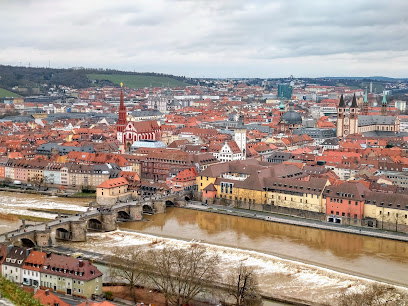
Marienberg Fortress
Experience the grandeur of Marienberg Fortress, a historical gem in Würzburg, offering breathtaking views and rich cultural heritage.

Würzburg Residence
Experience the grandeur of Würzburg Residence, a UNESCO World Heritage site, featuring opulent baroque architecture and stunning gardens in Germany.
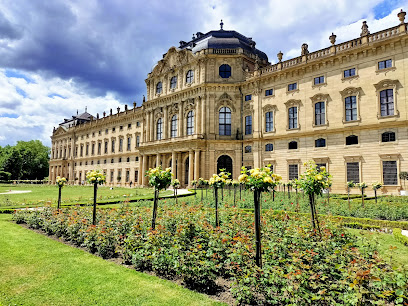
Wurzburg Cathedral
Discover the stunning beauty and rich history of Würzburg Cathedral, a must-visit Catholic cathedral in the heart of Würzburg, Germany.

Court Garden
Discover the stunning beauty and rich history of Würzburg's Court Garden, a serene escape adorned with art and nature.
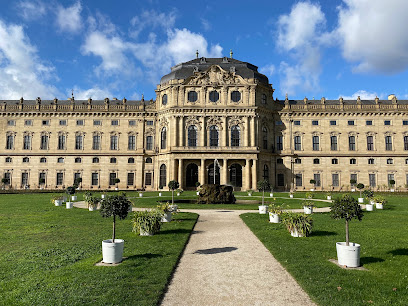
Schloss Veitshöchheim
Explore the stunning Schloss Veitshöchheim, a majestic castle and beautiful garden oasis in Germany, perfect for history and nature lovers alike.
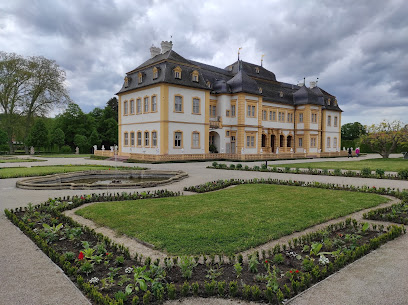
Käppele Sanctuary
Explore the spiritual and historical depths of Käppele Sanctuary in Würzburg, a stunning church and pilgrimage site surrounded by nature's beauty.
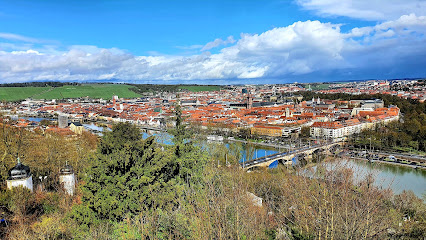
Marktplatz
Explore the vibrant Marktplatz in Würzburg, where history, culture, and local delicacies converge in a lively atmosphere.
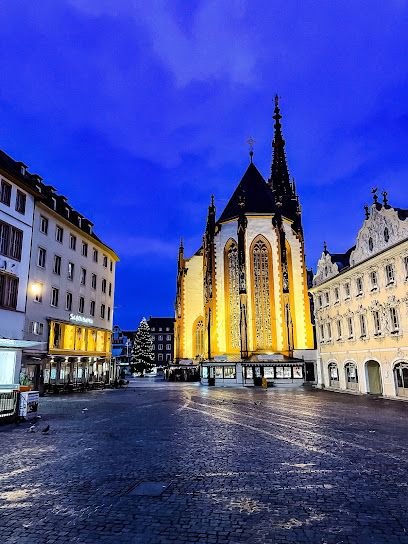
Botanical Garden
Explore the enchanting Botanical Garden in Würzburg, a beautiful sanctuary filled with diverse plant species and breathtaking landscapes.
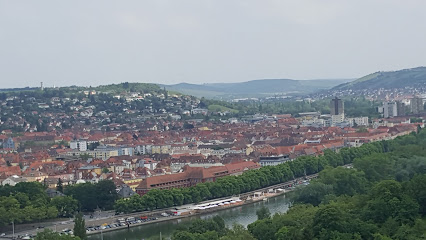
Ring Park
Explore the captivating beauty of Ring Park in Würzburg - a serene escape filled with lush landscapes and rich cultural history.
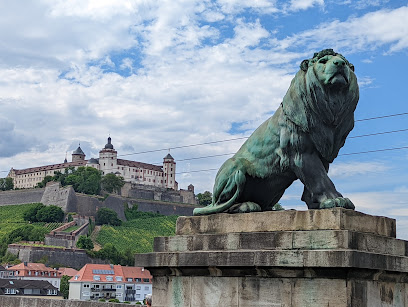
Four Tubes Fountain
Discover Würzburg's artistic heart at the Four Tubes Fountain, a Baroque masterpiece where history, culture, and refreshing waters converge in the city's vibrant Old Town.
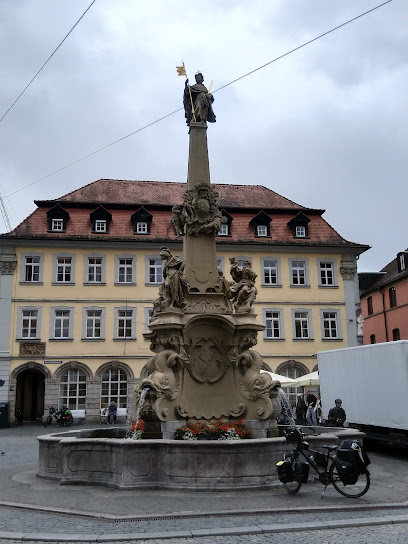
Maria Chappel
Explore the architectural beauty and serene atmosphere of Maria Chapel, a historic Catholic church in the heart of Würzburg's Old Town.
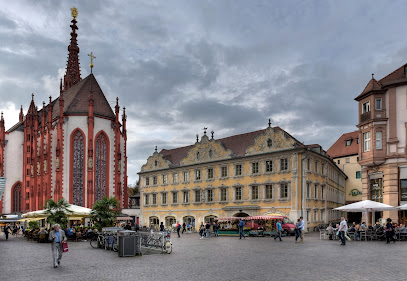
Falkenhaus
Discover the Falkenhaus in Würzburg, a stunning Rococo masterpiece on the Marktplatz, housing the Tourist Information Center and city library, reflecting the city's rich history and vibrant culture.
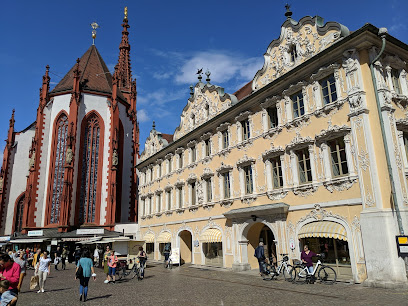
Museum im Kulturspeicher Würzburg
Discover a captivating fusion of modern art and industrial history at the Museum im Kulturspeicher Würzburg, showcasing diverse collections in a repurposed grain storage building on the Main River.
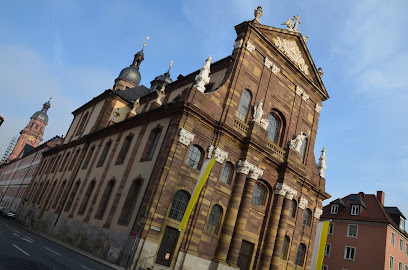
Lower Franconian Museum
Explore the rich cultural tapestry of the Lower Franconian Museum in Würzburg, a must-visit for art and history lovers alike.
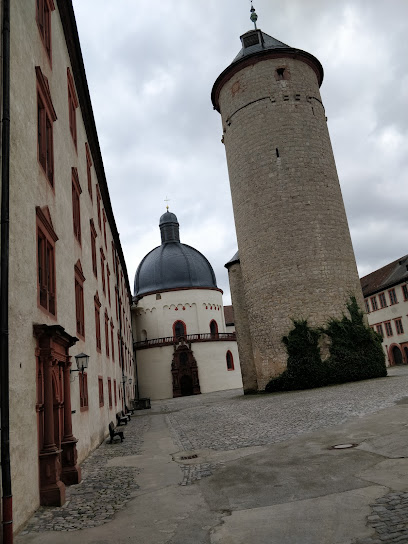
Unmissable attractions to see
Marienberg Fortress
Discover the grandeur of Marienberg Fortress, a historical jewel of Würzburg offering breathtaking views and rich cultural experiences.
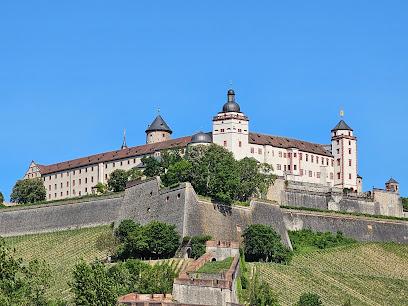
Würzburg Residence
Discover the grandeur of Würzburg Residence, a Baroque masterpiece and UNESCO World Heritage Site, where history and art converge in stunning harmony.
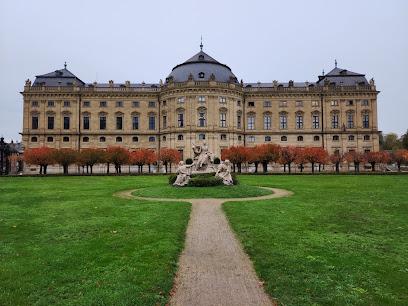
Plönlein
Plönlein: A picturesque historical landmark in Rothenburg ob der Tauber, where medieval charm meets vibrant architecture and stunning views.
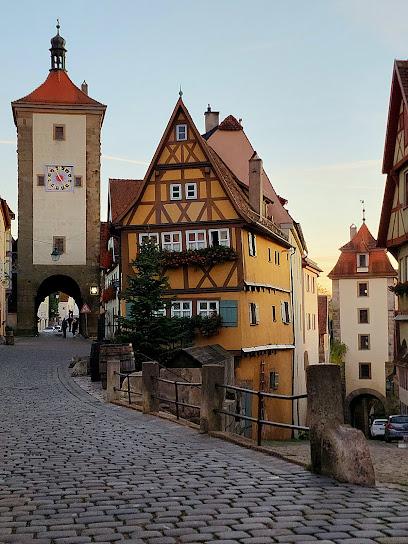
Medieval Crime Museum
Uncover the chilling history of justice at the Medieval Crime Museum in Rothenburg ob der Tauber, a must-visit for curious travelers and history enthusiasts.
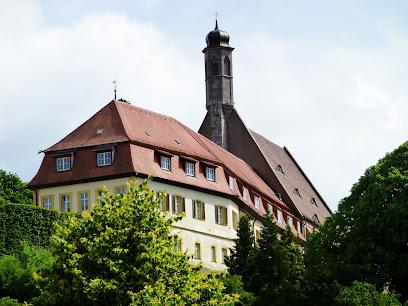
Wurzburg Cathedral
Discover Würzburg Cathedral, an architectural gem and spiritual haven showcasing breathtaking Baroque artistry in the heart of Würzburg, Germany.
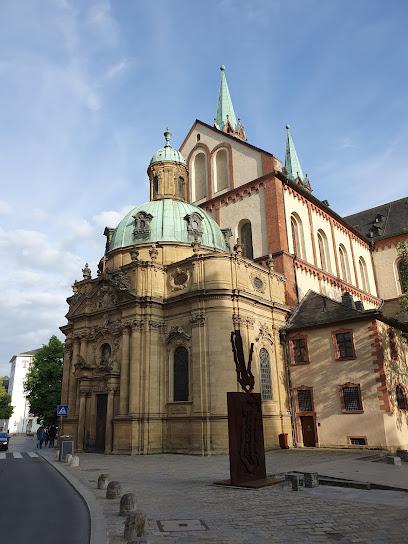
Castle and Gardens Weikersheim
Explore Weikersheim Castle, a stunning historical gem with beautiful gardens, rich heritage, and captivating architecture in the heart of Germany.
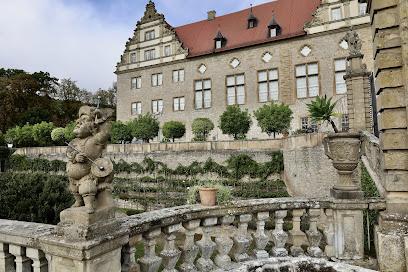
Schloss Veitshöchheim
Discover the enchanting Schloss Veitshöchheim, a stunning baroque castle with spectacular gardens in the heart of Germany, perfect for a historical escape.
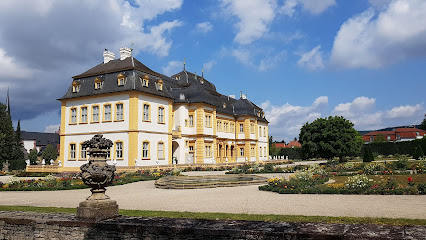
Castle Garden
Explore the serene Castle Garden in Rothenburg ob der Tauber, a beautiful park blending history with stunning views of the Tauber Valley.
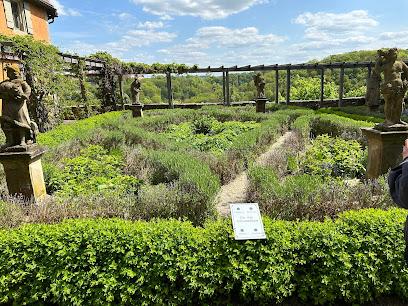
Market Square
Discover the enchanting Market Square in Rothenburg ob der Tauber, where history, culture, and stunning architecture come together in a captivating experience.
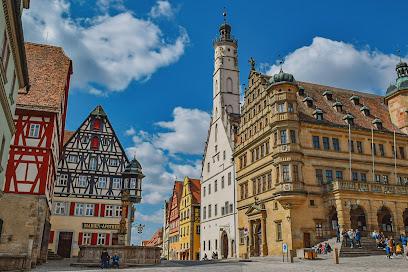
Marktplatz
Explore Würzburg's Marktplatz: a bustling marketplace rich in history, culture, and local flavors, perfect for an unforgettable tourist experience.
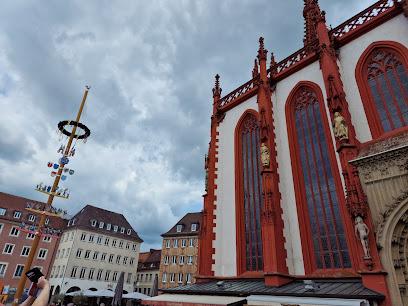
Town Hall
Explore Rothenburg ob der Tauber's Town Hall, a stunning historical landmark with rich culture and breathtaking views.
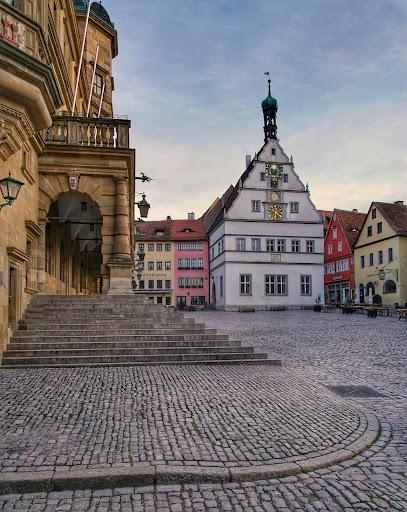
Botanical Garden
Discover the exquisite beauty of Würzburg's Botanical Garden, a tranquil retreat filled with diverse flora and serene landscapes.
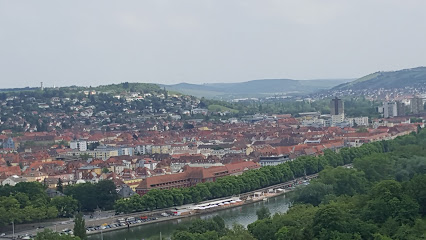
Ring Park
Experience the tranquility of Ring Park in Würzburg, a lush state park perfect for relaxation, picnics, and leisurely strolls amidst nature's beauty.
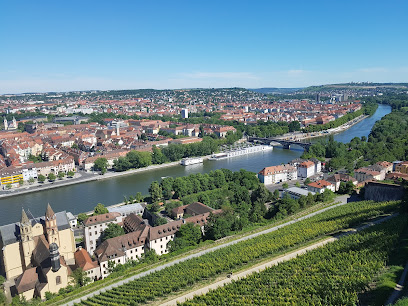
St Mary's Chapel
Explore the enchanting St. Mary's Chapel in Würzburg, a Gothic architectural gem filled with history, stunning artistry, and serene ambiance.
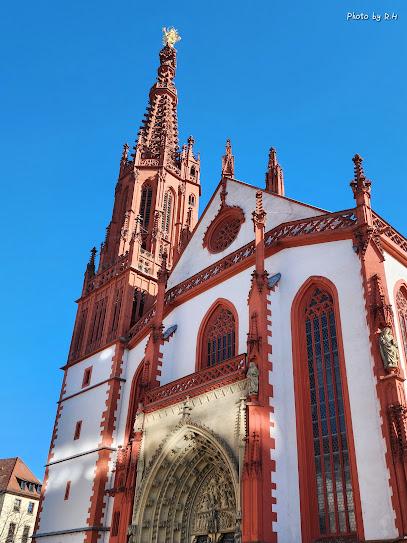
St. Jakobskirche
Experience the breathtaking beauty and rich history of St. Jakobskirche, a Gothic masterpiece in the heart of Rothenburg ob der Tauber.
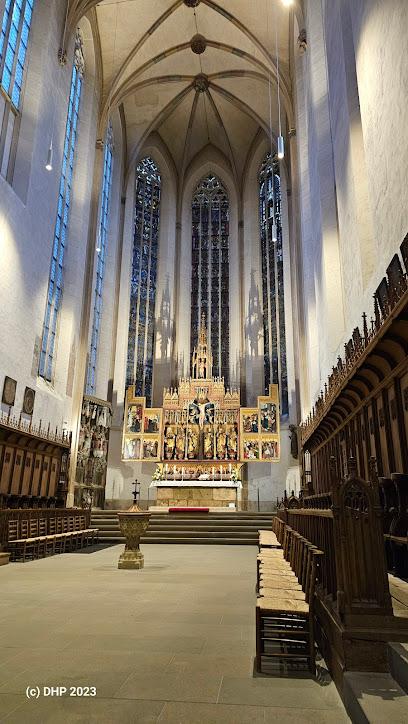
Essential places to dine
Locanda Würzburg - Pizza & Pasta
Discover authentic Italian cuisine at Locanda Würzburg – where every dish tells a story.
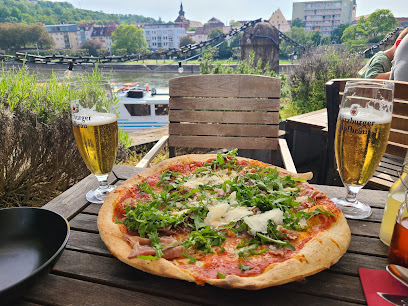
Restaurant HUBLAND
Experience authentic Greek flavors at Restaurant HUBLAND in Würzburg, where delicious Mediterranean cuisine meets warm hospitality.
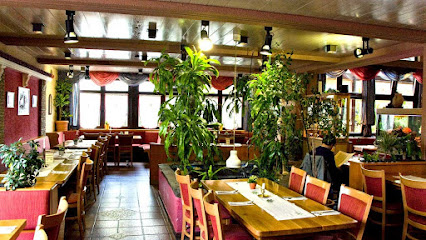
Almoço e jantar Brewery Inn Alter Kranen
Experience authentic German cuisine at Brewery Inn Alter Kranen in Würzburg – where tradition meets flavor along the River Main.
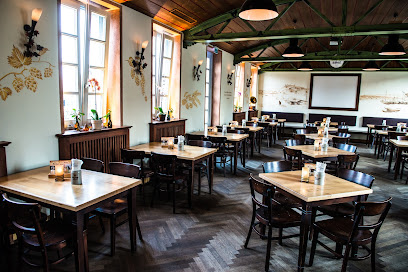
Backöfele
Savor authentic Franconian cuisine at Backöfele in Würzburg - where tradition meets flavor in every dish.
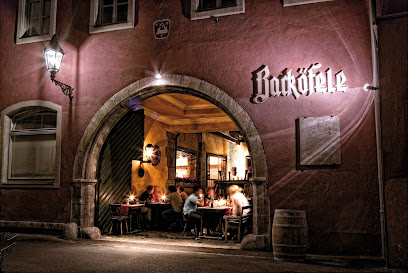
Gasthaus Alte Mainmühle
Discover authentic Franconian cuisine at Gasthaus Alte Mainmühle, where history meets culinary excellence along the banks of the Main River.
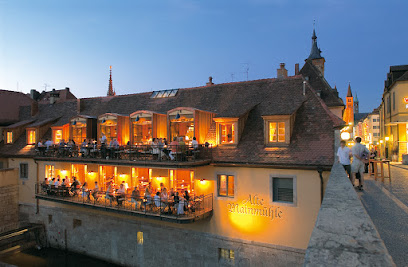
Habaneros
Discover the vibrant flavors of Tex-Mex cuisine at Habaneros in Würzburg—where culinary tradition meets lively atmosphere.
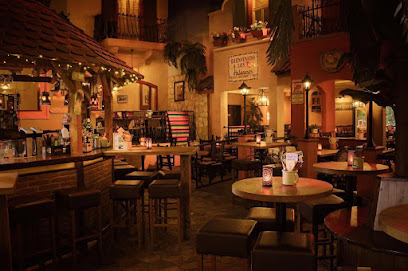
Bürgerspital-Weinstuben
Experience authentic Franconian cuisine at Bürgerspital-Weinstuben – where tradition meets culinary excellence in Würzburg.
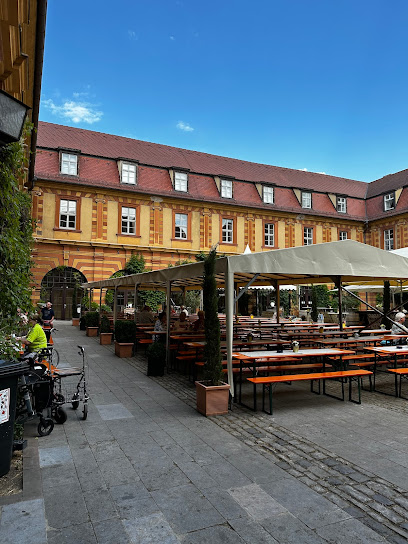
Wirtshaus Lämmle
Experience authentic Franconian cuisine at Wirtshaus Lämmle in Würzburg – where tradition meets taste in every bite.
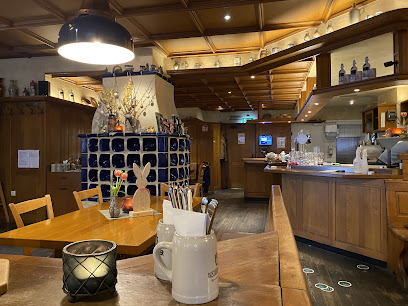
Kullman’s Diner Würzburg
Experience authentic American diner cuisine at Kullman’s Diner in Würzburg—burgers, shakes, and more await you!
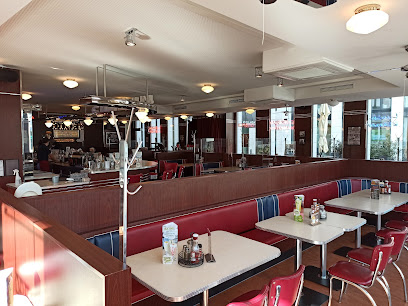
Ristorante Le Candele
Experience authentic Italian cuisine at Ristorante Le Candele in Würzburg - where every meal is a celebration of flavor.
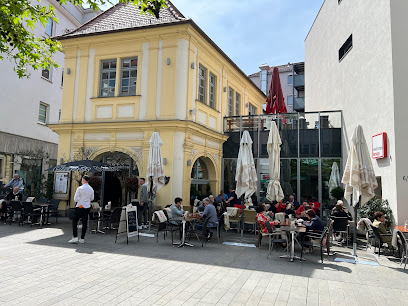
Würzburger Ratskeller
Savor the rich flavors of Franconian cuisine at Würzburger Ratskeller, a historic gem in Würzburg offering authentic dishes and local wines.
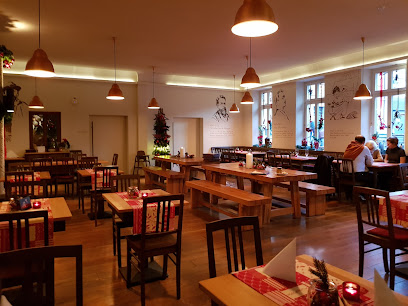
Mykonos Restaurant
Discover authentic Greek cuisine at Mykonos Restaurant in Würzburg – where every dish tells a story of tradition and flavor.
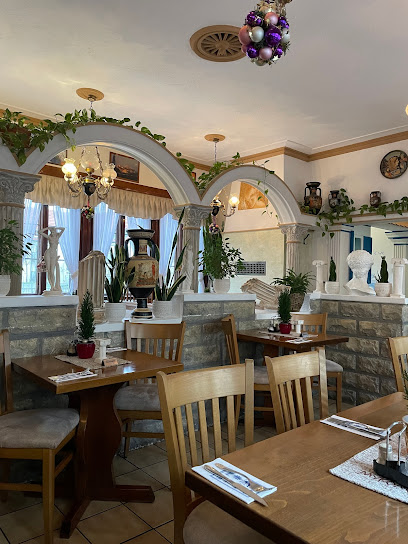
La Rustica | Ristorante & Pizzeria
Experience authentic Italian flavors at La Rustica in Würzburg - where every meal feels like a culinary journey through Italy.
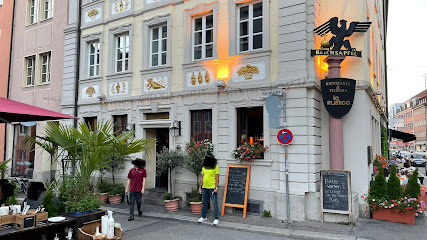
Sternbäck
Experience authentic German cuisine and lively atmosphere at Sternbäck in Würzburg's historic Altstadt.
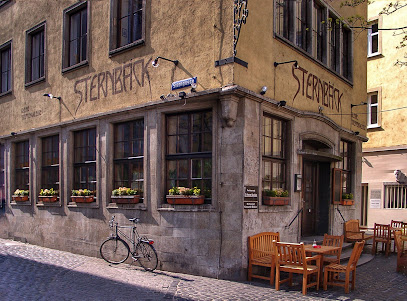
Restaurant & Weinhaus Stachel
Savor authentic Franconian cuisine and exquisite wines at Restaurant & Weinhaus Stachel in Würzburg's historic Altstadt.
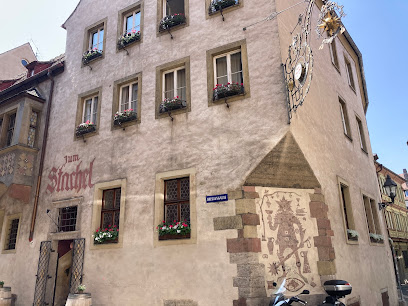
Markets, malls and hidden boutiques
Galeria Kaufhof
Discover the ultimate shopping experience at Galeria Kaufhof, Würzburg's premier department store, blending local charm with global brands.
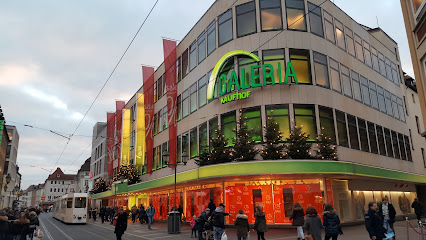
TK Maxx
Explore TK Maxx in Würzburg for unbeatable deals on fashion and home goods in a vibrant shopping atmosphere.
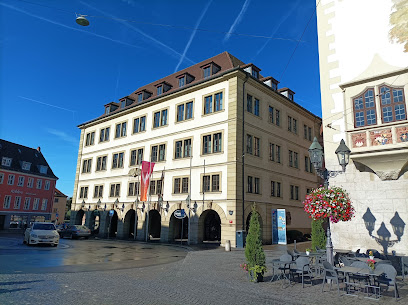
Woolworth
Discover a world of shopping at Woolworth in Würzburg, where quality meets variety in a vibrant department store setting.
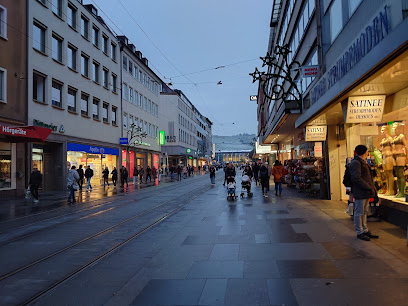
Zara
Shop the latest fashion trends at Zara in Würzburg, a stylish clothing store offering a wide selection for the whole family.
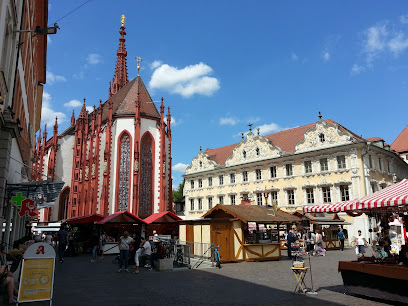
WÖHRL
Discover WÖHRL in Würzburg: Your ultimate destination for fashion, offering a wide range of stylish clothing for the whole family.
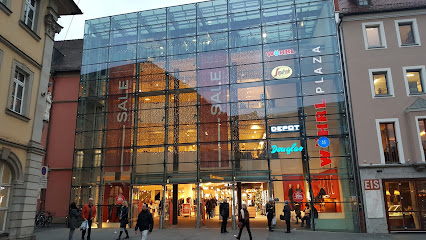
Blowout skate and snowboard shop
Explore Würzburg's premier destination for skateboarding and snowboarding gear, apparel, and community connection at Blowout Skate and Snowboard Shop.
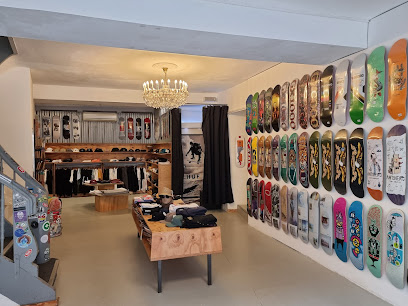
Hermkes Roman Boutique, Eibach u. Sterner GbR
Explore a comic lover's paradise at Hermkes Roman Boutique in Würzburg, where books, comics, and games await every enthusiast.
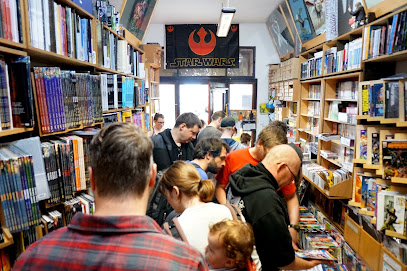
Echter-Galerie
Explore the Echter-Galerie in Würzburg, where shopping meets leisure in a modern setting filled with diverse shops and cozy cafés.
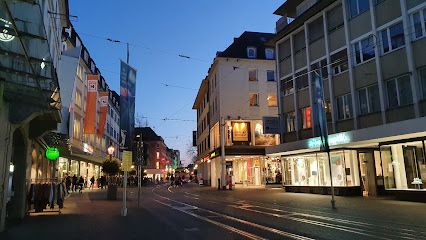
s.Oliver Store
Discover stylish clothing and accessories at s.Oliver Store in Würzburg - a fashion destination in the heart of the city.
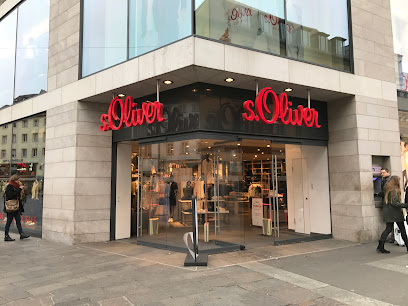
Mainglück
Explore Mainglück in Würzburg for a unique shopping experience, featuring stylish women's clothing and personalized service in a charming boutique atmosphere.
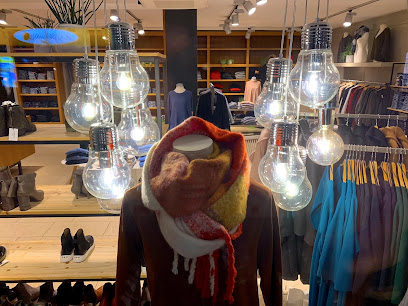
LUSH Cosmetics Würzburg
Explore the enchanting LUSH Cosmetics in Würzburg for handmade beauty products that are fresh, ethical, and eco-friendly.
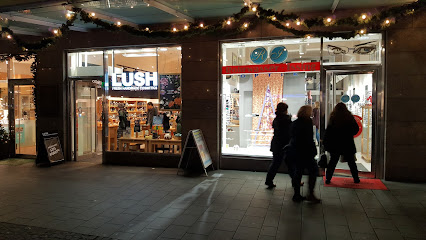
EuroShop
EuroShop in Würzburg offers a diverse selection of affordable gifts, home goods, and unique souvenirs, perfect for tourists seeking memorable treasures.
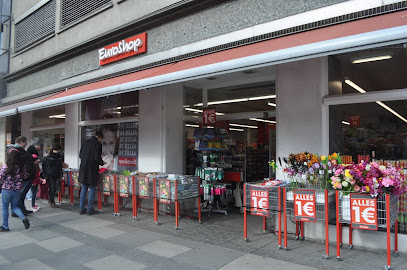
Lindt Boutique Würzburg
Discover the exquisite world of chocolate at Lindt Boutique Würzburg, where every bite is a rich delight waiting to be savored.
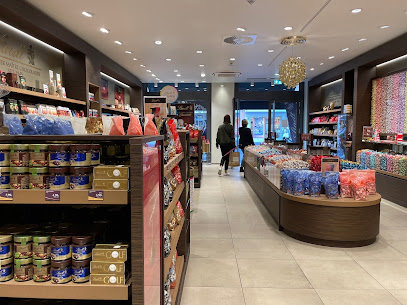
NANU-NANA
Explore NANU-NANA in Würzburg for unique gifts, crafts, and home decor that capture the essence of local culture.
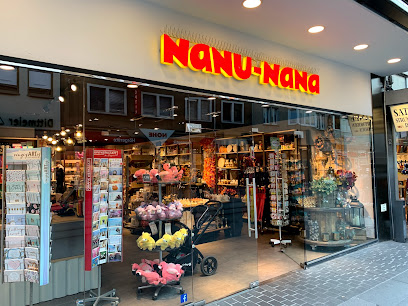
EXKLAVE Vintage Concept-Store (Second-Hand Shop)
Explore the vibrant world of sustainable fashion at EXKLAVE Vintage Concept-Store, offering unique vintage clothing and accessories in Würzburg.
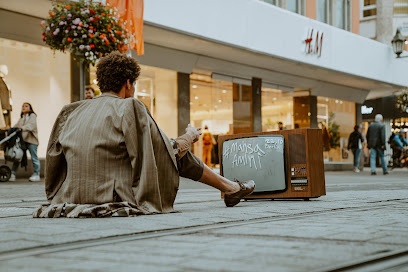
Essential bars & hidden hideouts
Wohnzimmer Bar Würzburg
Discover the lively ambiance and diverse drink selection at Wohnzimmer Bar, Würzburg's favorite spot for relaxation and socializing.
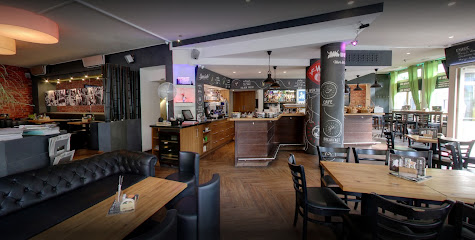
Escalera :: Cocktailbar und Restaurant
Explore Würzburg's vibrant nightlife at Escalera, a cocktail bar and restaurant offering creative drinks and delicious meals in a cozy atmosphere.
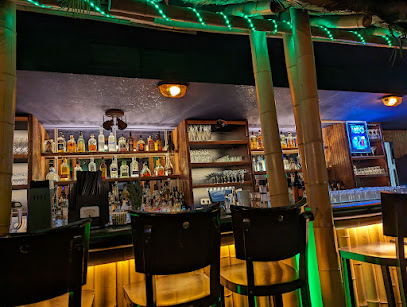
Standard - Würzburg
Discover the vibrant atmosphere of Standard - Würzburg, a cultural gem where local flavors meet friendly vibes in the heart of Würzburg.
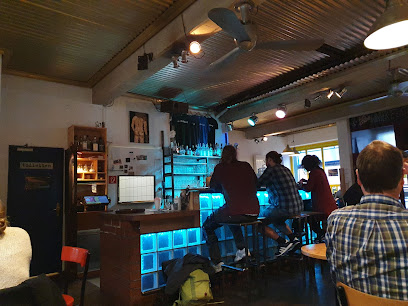
The Red Lion Pub - Würzburg
Experience authentic Irish hospitality at The Red Lion Pub in Würzburg, where delicious food and a vibrant atmosphere await.
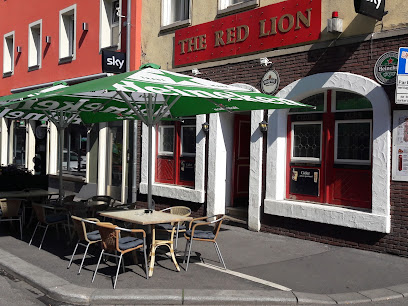
Nachtwächter
Experience the vibrant atmosphere of Nachtwächter, a charming pub in Würzburg offering local beers and traditional German cuisine.
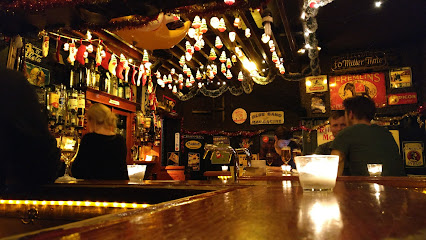
Loma
Discover the lively atmosphere of Loma, Würzburg's premier bar for creative cocktails and unforgettable nightlife experiences.
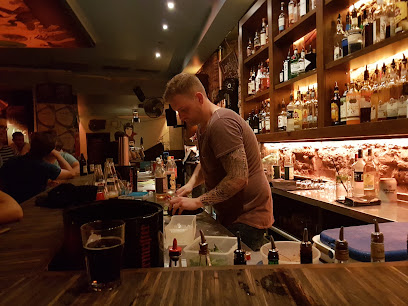
Hasenstall - Würzburg
Discover the lively nightlife at Hasenstall in Würzburg, where cocktails meet a vibrant atmosphere in the heart of the city.
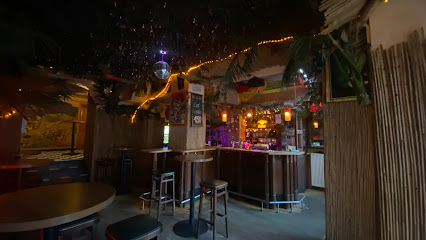
Weinstube und Bierkeller Till Eulenspiegel
Experience the best of Franconian wines and hearty German cuisine at Weinstube und Bierkeller Till Eulenspiegel in Würzburg.
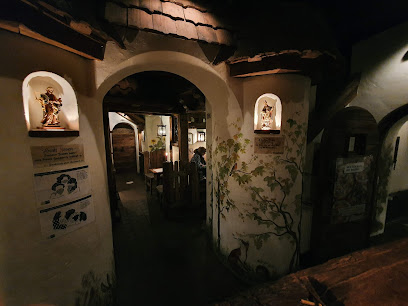
La Bamba - Würzburg
Experience the vibrant nightlife at La Bamba in Würzburg, where delicious drinks and a lively atmosphere await you.
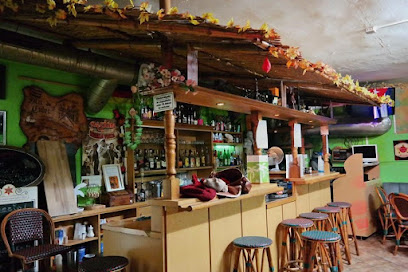
Lemondrive Bar
Discover the vibrant nightlife of Würzburg at Lemondrive Bar, where expertly crafted cocktails meet a lively atmosphere for an unforgettable night out.
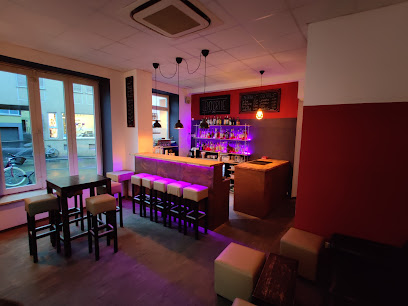
Irish Pixie
Experience the heart of Würzburg nightlife at Irish Pixie Bar, where delightful drinks and a warm atmosphere await.
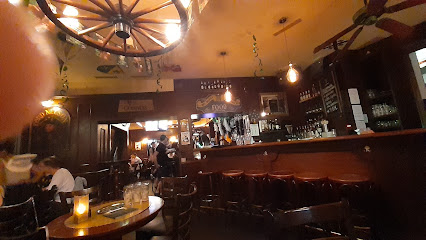
Heinrich
Discover Heinrich, the charming bar in Würzburg's Altstadt, offering a delightful atmosphere and a wide range of beverages for every taste.
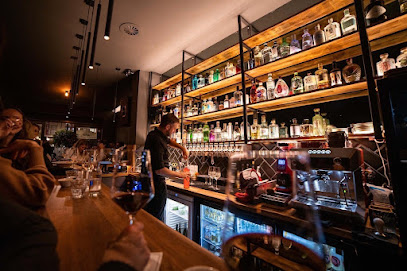
Hohlstange - Würzburg
Experience the lively nightlife of Würzburg at Hohlstange, where cocktails and camaraderie create unforgettable moments.
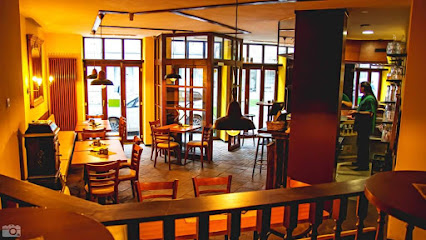
Chase Bar
Experience the vibrant nightlife at Chase Bar in Würzburg, where exquisite cocktails meet dynamic dance floors in a chic atmosphere.
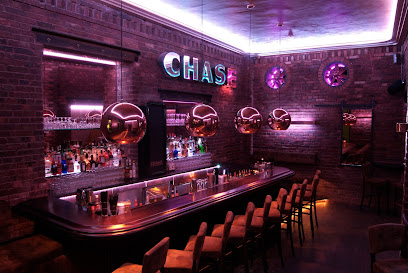
hoch3 - Skylounge
Discover hoch3 - Skylounge, the premier rooftop bar in Würzburg offering stunning views, a vibrant atmosphere, and a delightful selection of drinks.
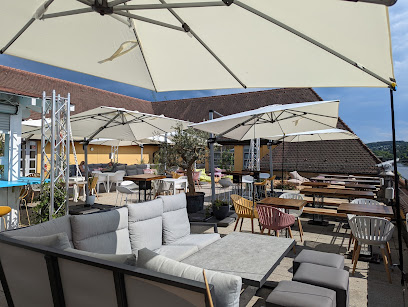
Local Phrases
-
- HelloHallo
[HAH-loh] - GoodbyeAuf Wiedersehen
[owf VEE-duhr-zayn] - YesJa
[yah] - NoNein
[nine] - Please/You're welcomeBitte
[BIT-tuh] - Thank youDanke
[DAHN-kuh] - Excuse me/SorryEntschuldigung
[ent-SHOOL-dee-goong] - How are you?Wie geht es Ihnen?
[vee gayt es EE-nen] - Fine. And you?Gut. Und Ihnen?
[goot oont EE-nen] - Do you speak English?Sprechen Sie Englisch?
[SPRE-khen zee ENG-lish] - I don't understandIch verstehe nicht
[ikh fer-SHTAY-uh nikht]
- HelloHallo
-
- I'd like to see the menu, pleaseIch möchte die Speisekarte sehen, bitte
[ikh MERK-teh dee SHPY-zuh-kar-teh ZAY-en, BIT-tuh] - I don't eat meatIch esse kein Fleisch
[ikh ESS-eh kine FLAYSH] - Cheers!Prost!
[prohst] - I would like to pay, pleaseIch würde gerne bezahlen, bitte
[ikh VU-duh gehr-neh beh-TSAH-len, BIT-tuh]
- I'd like to see the menu, pleaseIch möchte die Speisekarte sehen, bitte
-
- Help!Hilfe!
[HIL-fuh] - Go away!Gehen Sie weg!
[GAY-en zee veg] - Call the Police!Rufen Sie die Polizei!
[ROO-fen zee dee po-LEE-tsai] - Call a doctor!Rufen Sie einen Arzt!
[ROO-fen zee AI-nen artsht] - I'm lostIch habe mich verirrt
[ikh HAH-buh mikh fuh-REERT] - I'm illIch bin krank
[ikh bin KRONK]
- Help!Hilfe!
-
- I'd like to buy...Ich möchte kaufen...
[ikh MERK-teh KOW-fen] - I'm just lookingIch schaue nur
[ikh SHOW-uh noor] - How much is it?Wie viel kostet es?
[vee feel KOS-tet es] - That's too expensiveDas ist zu teuer
[dahs ist tsoo TOW-er] - Can you lower the price?Können Sie den Preis senken?
[KERN-en zee den PRICE ZEN-ken]
- I'd like to buy...Ich möchte kaufen...
-
- What time is it?Wie spät ist es?
[vee SHPAYT ist es] - It's one o'clockEs ist eins
[es ist iens] - Half past (10)Halb zehn
[halb tsayn] - MorningMorgen
[MOHR-guhn] - AfternoonNachmittag
[NAKH-mit-tahg] - EveningAbend
[AH-bent] - YesterdayGestern
[GEHS-tern] - TodayHeute
[HOY-tuh] - TomorrowMorgen
[MOHR-guhn] - 1eins
[iens] - 2zwei
[tsvai] - 3drei
[dry] - 4vier
[feer] - 5fünf
[fuhnf] - 6sechs
[zeks] - 7sieben
[zee-ben] - 8acht
[akht] - 9neun
[noyn] - 10zehn
[tsayn]
- What time is it?Wie spät ist es?
-
- Where's a/the...?Wo ist ein/der...?
[voh ist iyn/der] - What's the address?Was ist die Adresse?
[vas ist dee ah-DRES-eh] - Can you show me (on the map)?Können Sie mir zeigen (auf der Karte)?
[KERN-en zee meer ZAY-gen (owf dair KAR-teh)] - When's the next (bus)?Wann kommt der nächste (Bus)?
[vahn kommt dair NOKS-teh (boos)] - A ticket (to ....)Eine Fahrkarte (nach ....)
[AI-nuh FAR-kar-teh (nahkh)]
- Where's a/the...?Wo ist ein/der...?
History of Wurzburg
-
Würzburg's history dates back to the Bronze Age, with evidence of Celtic settlements from around 1000 BC. The city was first mentioned as 'Uburzis' in a document from 704 AD, indicating its early significance as a settlement. It became an important center for the Franks in the early Middle Ages.
-
The turning point for Würzburg came in 741 AD when Saint Boniface established the Diocese of Würzburg. The construction of the first Würzburg Cathedral began shortly after, making the city a vital religious center in the Frankish Empire. It attracted scholars, clergy, and pilgrims, contributing to its growth and influence.
-
From the 12th century, Würzburg was ruled by powerful prince-bishops who held both secular and ecclesiastical power. They were responsible for the city's impressive architectural development, including the construction of the Würzburg Residence, a UNESCO World Heritage site, and the Marienberg Fortress, which served as their residence.
-
Built between 1720 and 1744, the Würzburg Residence is a masterpiece of Baroque architecture. Commissioned by Prince-Bishop Johann Philipp Franz von Schönborn and designed by Balthasar Neumann, it features magnificent frescoes by Giovanni Battista Tiepolo. The Residence is renowned for its grand staircase, opulent halls, and extensive gardens.
-
Founded in 1402 and re-established in 1582, the Julius-Maximilians-Universität Würzburg is one of Germany's oldest universities. It has been a center of learning and research for centuries, with notable alumni including Wilhelm Conrad Roentgen, who discovered X-rays, and Rudolf Virchow, the father of modern pathology.
-
During the Thirty Years' War (1618-1648), Würzburg was a strategic and religious battleground. The city endured multiple sieges and occupations by both Protestant and Catholic forces. Despite the devastation, the city managed to recover and continue its role as a religious and cultural center.
-
Würzburg was the site of some of the most severe witch trials in Europe during the late 16th and early 17th centuries. Hundreds of people, including many children, were accused of witchcraft and executed. These trials were driven by a combination of superstition, religious fervor, and political motives.
-
The early 19th century brought significant changes to Würzburg. During the Napoleonic Wars, the city was briefly part of the Confederation of the Rhine and later incorporated into the Kingdom of Bavaria in 1814. The secularization process led to the dissolution of the prince-bishopric, ending centuries of ecclesiastical rule.
-
Würzburg suffered extensive damage during World War II, with an Allied bombing raid on March 16, 1945, destroying about 90% of the city center. The post-war reconstruction efforts were monumental, focusing on restoring historic buildings such as the Würzburg Residence and the Old Main Bridge, while also modernizing the city.
-
Today, Würzburg is a vibrant city known for its rich history, cultural heritage, and educational institutions. It is a key stop on Germany's Romantic Road and attracts visitors with its well-preserved architecture, lively wine festivals, and scenic location on the Main River. The city's blend of historical significance and contemporary charm makes it a unique destination.
Wurzburg Essentials
-
Würzburg is well-connected by various modes of transport. The nearest major airport is Frankfurt Airport, located approximately 120 kilometers away. From Frankfurt, you can take a direct train to Würzburg, which takes about 1.5 hours. Alternatively, Nürnberg Airport is also an option and is about 110 kilometers from Würzburg; trains from Nürnberg to Würzburg take approximately 1 hour. If you are driving, Würzburg is accessible via the A3, A7, and A81 motorways.
-
Würzburg has a reliable public transport system, including buses and trams operated by WVV (Würzburger Versorgungs- und Verkehrs-GmbH). Tickets can be purchased at kiosks, online, or directly from the driver. For short distances, walking or cycling are excellent options, as many of the city's attractions are close to each other. Taxis and ride-sharing services are also available for more convenient travel.
-
The official currency in Germany is the Euro (EUR). Credit and debit cards are widely accepted in hotels, restaurants, and larger stores, but it is advisable to carry some cash for smaller establishments and markets. ATMs are readily available throughout the city for cash withdrawals.
-
Würzburg is generally a safe city for tourists. However, as with any urban area, it is important to stay vigilant, particularly in crowded places like train stations and tourist attractions. Petty crimes such as pickpocketing can occur, so keep your belongings secure. Areas such as the train station and the Mainfranken Theater can be busy and require extra attention to personal items.
-
In case of an emergency, dial 112 for immediate assistance, which will connect you to ambulance, fire, and police services. The main hospital in Würzburg is the Universitätsklinikum Würzburg. Pharmacies ('Apotheken') are available throughout the city and often have emergency contact numbers listed on their doors for after-hours service. It is highly recommended to have travel insurance that covers medical emergencies.
-
Fashion: Do dress smartly, especially when dining out or visiting cultural sites. Avoid overly casual or revealing clothing in religious sites and formal settings. Religion: Do respect religious customs and dress modestly when visiting churches. Public Transport: Do validate your ticket before boarding and be punctual. Don't talk loudly or disrupt other passengers. Greetings: Do greet people with a firm handshake and maintain eye contact. Eating & Drinking: Do try local Franconian wines and dishes. Don't rush meals; dining is a leisurely activity in Würzburg.
-
To experience Würzburg like a local, visit the weekly markets at Marktplatz and the Bürgerspital Weinstuben for authentic Franconian cuisine. Engage with locals and don't hesitate to ask for their wine recommendations, as Würzburg is famous for its vineyards and wine culture. Explore the lesser-known neighborhoods like the Sanderau or Zellerau for a more authentic experience. Attend events such as the Mozart Festival or the annual wine festivals to immerse yourself in the local culture.
Nearby Cities to Wurzburg
-
Things To Do in Rothenburg ob der Tauber
-
Things To Do in Nuremberg
-
Things To Do in Frankfurt
-
Things To Do in Heidelberg
-
Things To Do in Stuttgart
-
Things To Do in Erfurt
-
Things To Do in Koblenz
-
Things To Do in Strasbourg
-
Things To Do in Karlovy Vary
-
Things To Do in Munich
-
Things To Do in Bonn
-
Things To Do in Leipzig
-
Things To Do in Plzeň
-
Things To Do in Cologne
-
Things To Do in Freiburg















